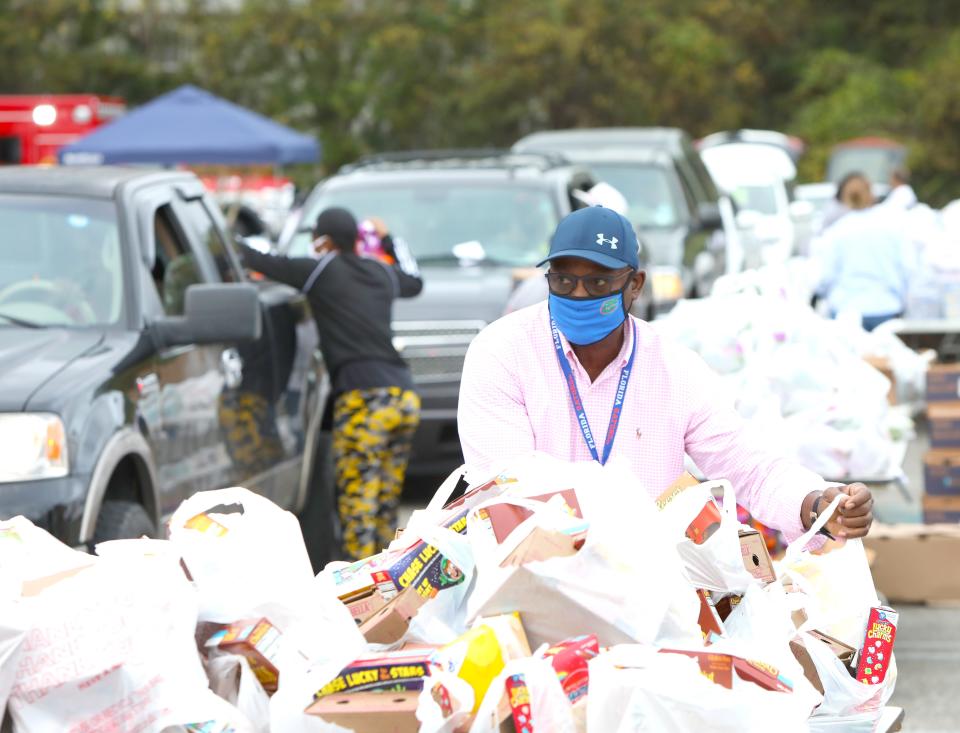From Greece to Gainesville: two sides of the same coin
This summer I studied abroad in Thessaloniki, Greece. I loved every minute spent in the city learning about the Greek health care system and Greek culture.
However, I’ll admit that my initial, romanticized picture of Greece was amended from my first step off the tour bus. There were graffiti-covered city walls, homeless people scattered on street corners and cigarette butts littering the sidewalks. Almost everything seemed to be still climbing out of poverty.
In 2009, Greece began a tumultuous decade-long economic crisis that still has its economy struggling. In 2014, unemployment was alarmingly high, with a quarter of citizens unemployed, compared to a 10% unemployment rate prior to the economic crisis. Repercussions of the recession were especially felt by younger generations, as 61.4% of citizens under the age of 25 were unemployed.

The economic crisis was of unprecedented severity and one study correlated it with increased suicide rates, substance abuse and the spread of infectious disease. A poorer economy is inevitably linked to worse health outcomes.
While abroad, I researched the impact of the economic crisis on Greek diet, observing an increase in food insecurity and unhealthy eating. In recent years, Greece has deviated from the Mediterranean diet, which emphasizes whole grains, fruits, vegetables and olive oil as a healthy fat. It also strongly limits consumption of red meat.
Xenophon Theodoridis, a dietician and master’s student at Aristotle University, postulated that the economic crisis created an inability to prioritize healthy eating. He reasoned that with the average Greek salary being 600 euros a month, at least 300 of which is allocated for rent, there is “simply not enough left in the budget to prioritize a healthy diet.”

Xenophon explained that young people especially will sacrifice healthier options for cheaper red meat, like a one-euro street burger, or personal expenses, such as the “Greek lifestyle.” A study by Xenophon and his colleagues actually found that the majority of Greek university students demonstrated some level of food insecurity.
Unhealthy diets have been adopted out of ease and cost-efficiency. Ultimately, a double burden of malnutrition has been created where individuals do not receive adequate amounts of food, yet 69.4% of those receiving food assistance are overweight or obese due to the processed nature of their food. The nutritional transition away from the Mediterranean diet and towards more processed foods has hurt Greek health.
It was easy for me to identify points of poverty and food insecurity while abroad, yet I admit I have mostly overlooked the same conditions plaguing us here at home. The same unhealthy dietary trends and food insecurity pervade American families.
The U.S. suffers from the highest levels of inequality amongst rich nations in the world. There are 37.3 million people, or more than 11% of the U.S. population, that live below the poverty line as of 2020. An astounding 29.7% of Gainesville’s population, or about one in every three people, lives in poverty, according to the most recent United States Census Bureau.
Gainesville is a prime example of wealth overlooking neighboring poverty and hunger. Alachua County has maintained higher food insecurity rates compared to the overall state of Florida since 2014, with 13.4% of Alachua County being food insecure in 2019.

Adding fuel to the fire, research conducted by the city of Gainesville identified the existence of 11 food deserts, or areas where healthy food is inaccessible, leading to obesity, diabetes and chronic disease in residents in the area. It is no surprise that these deserts primarily exist in East Gainesville, which is historically poorer and has fewer medical resources available to the residents. Systematic barriers to optimal health disproportionally burden residents in East Gainesville.
Going abroad, the issue of food insecurity seemed overwhelmingly apparent, yet these same issues burden our local community. In fact, the proportion of citizens facing poverty in Gainesville are about the same, if not worse than Greece.
We can help local food insecure families by simply acknowledging their existence and fostering empathy. Volunteering and donating to local food pantries are also active ways to combat local inequality.
Molly O’Neill is a fourth-year undergraduate student at the University of Florida with a major in general psychology and minors in French and health disparities in society. She is on the pre-medical track and spends her time volunteering in UF Health Shands hospital pediatric units, teaching kids to golf, and interning with Gainesville For All.
Join the conversation
Share your opinions by sending a letter to the editor (up to 200 words) to letters@gainesville.com. Letters must include the writer's full name and city of residence. Additional guidelines for submitting letters and longer guest columns can be found at bit.ly/sunopinionguidelines.
Journalism matters. Your support matters.
Get a digital subscription to the Gainesville Sun. Includes must-see content on Gainesville.com and Gatorsports.com, breaking news and updates on all your devices, and access to the eEdition. Visit www.gainesville.com/subscribenow to sign up.
This article originally appeared on The Gainesville Sun: Molly O’Neill: Food insecurity is a problem from Greece to Gainesville

